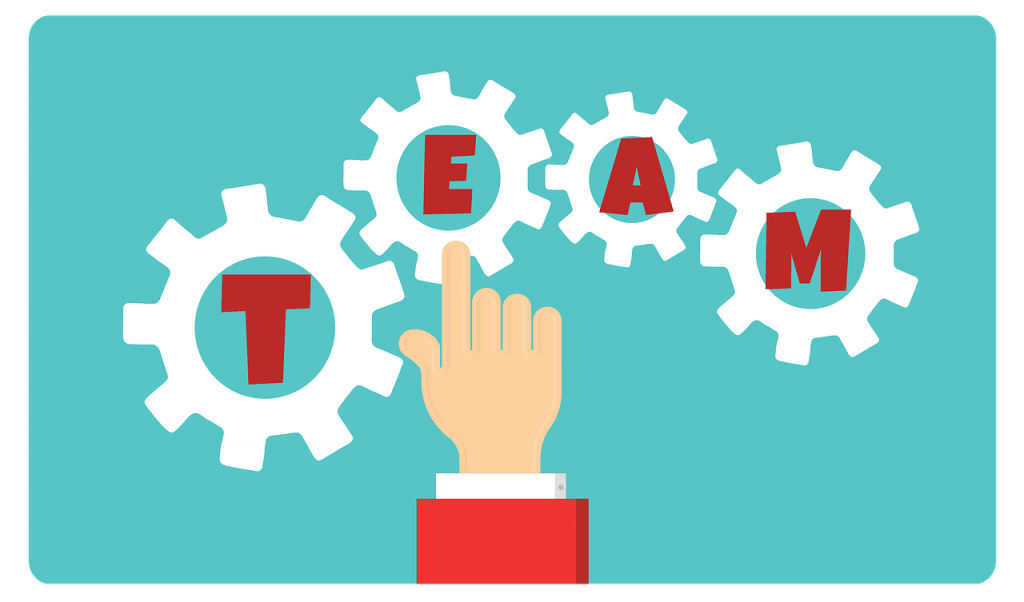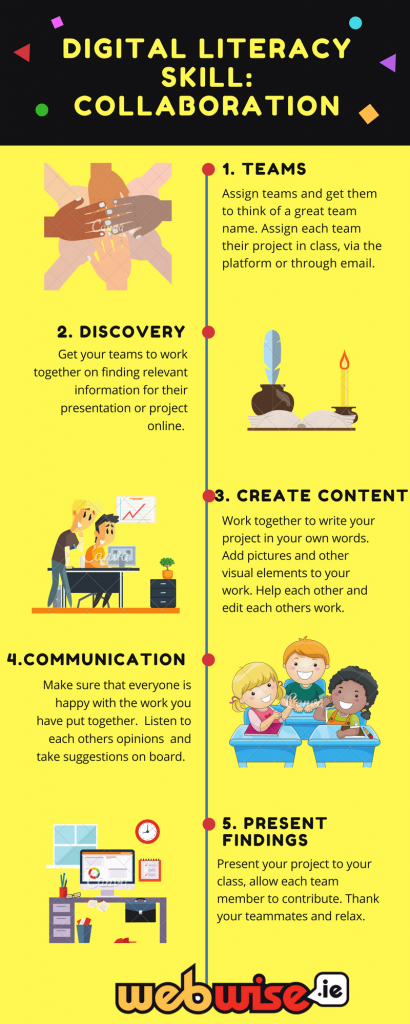Digital Literacy Skills: Collaboration
Technology is a key tool to promote and enhance collaboration skills. Learning to work with others is a life skill that will stand to every student in the future. Technology makes collaboration and teamwork easy. There are a host of platforms teachers can use to utilise collaboration as a main component of learning in class or at home. Jigsaw learning, collaborative writing and task-based projects are all some of the activities that can be done using technology. Here is a list of websites that are safe to use with students when doing project work: here. they include: Scoilnet, Seomra Ranga, National Geographic Kids and Imagebank among others.
Peer learning and collaboration can be created with your students using a variety of online mediums. Teachers often use Google Classroom to collect and disseminate work, while presentations or a wikis are great to show end results. Online platforms such as these allows users to edit and modify both content and structure collaboratively. By using technology, it enables the teacher to extend the walls of the classroom and allow for different learning styles. Work can be completed by students in class or at home. On most online platforms, take Wikispaces as an example, the teacher is able to track what students are doing, send messages and schedule deadlines, and to monitor changes in real time. Just make sure you establish clear codes of practice on what students are allowed to say online before using starting your online project.
What Are the Benefits?

By using online collaboration tools your students are able to negotiate content between each other and work together on including visual elements to enhance the overall look and feel of their project/ presentation. It is a democratic tool in that students must accept and amend their ideas and work, based on peer reviewing and feedback. Students are able to contribute, revise and edit, comment, reference and study using these enhanced learning tools.
According to Vygotsky’s theory of Zones of Proximal Development, more commonly known as scaffolding, learners who work together can create an environment where they work slightly above their own level. Therefore, cooperation with more knowledgeable peers can increase both achievement and productivity.
Want to start a task-based project with your students using technology? Use our handy infographic to get things going:

Print version here.





